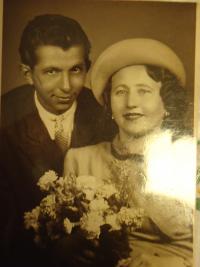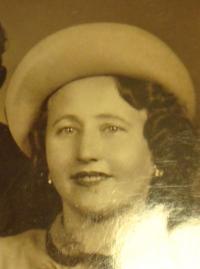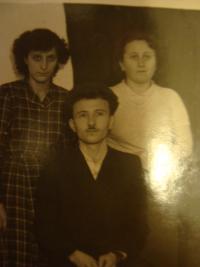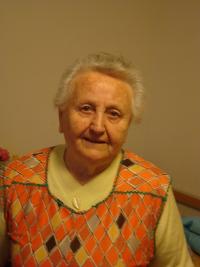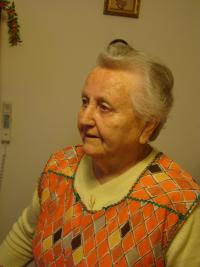They herded the village people together and ordered them to dig a hole
Anna Doubková née Stoklasová, (first married as Klapalová, for the second time as Vincencová), was born on May 22, 1924, in the village of Brestovac, Daruvar district, in the Kingdom of Serbs, Croats and Slovenes, later officially renamed to Yugoslavia. She attended a municipal school and helped her mother with the daily household work. In 1941 she joined the resistance movement against the Croat Ustashi (the Croat ultra-nationalist anti-Serb, anti-Semitic and anti-Roma organization) and the German occupation forces. She became a liaison in the Moslavec brigade and later in the Jan-Žižka-from-Trocnov brigade. She operated as a messenger providing villages with news or supplying the guerillas with weapons and equipment. She remained in this position till 1945 when the war ended in Yugoslavia. Her husband Alois Klapal was a guerilla fighter and then later a captain. In 1945, he went to Czechoslovakia to represent the Czech partisans in Yugoslavia but unfortunately died upon his arrival. Anna came to Czechoslovakia to attend his funeral and thereafter stayed in Prague. She worked in the Tesla works and married for a second time (she changed her surname to Vincentová). After her second husband died, she married for a third time. Her third husband is Mr. Doubek from the south of Bohemia. She currently lives in Blatná.

